SEARCH


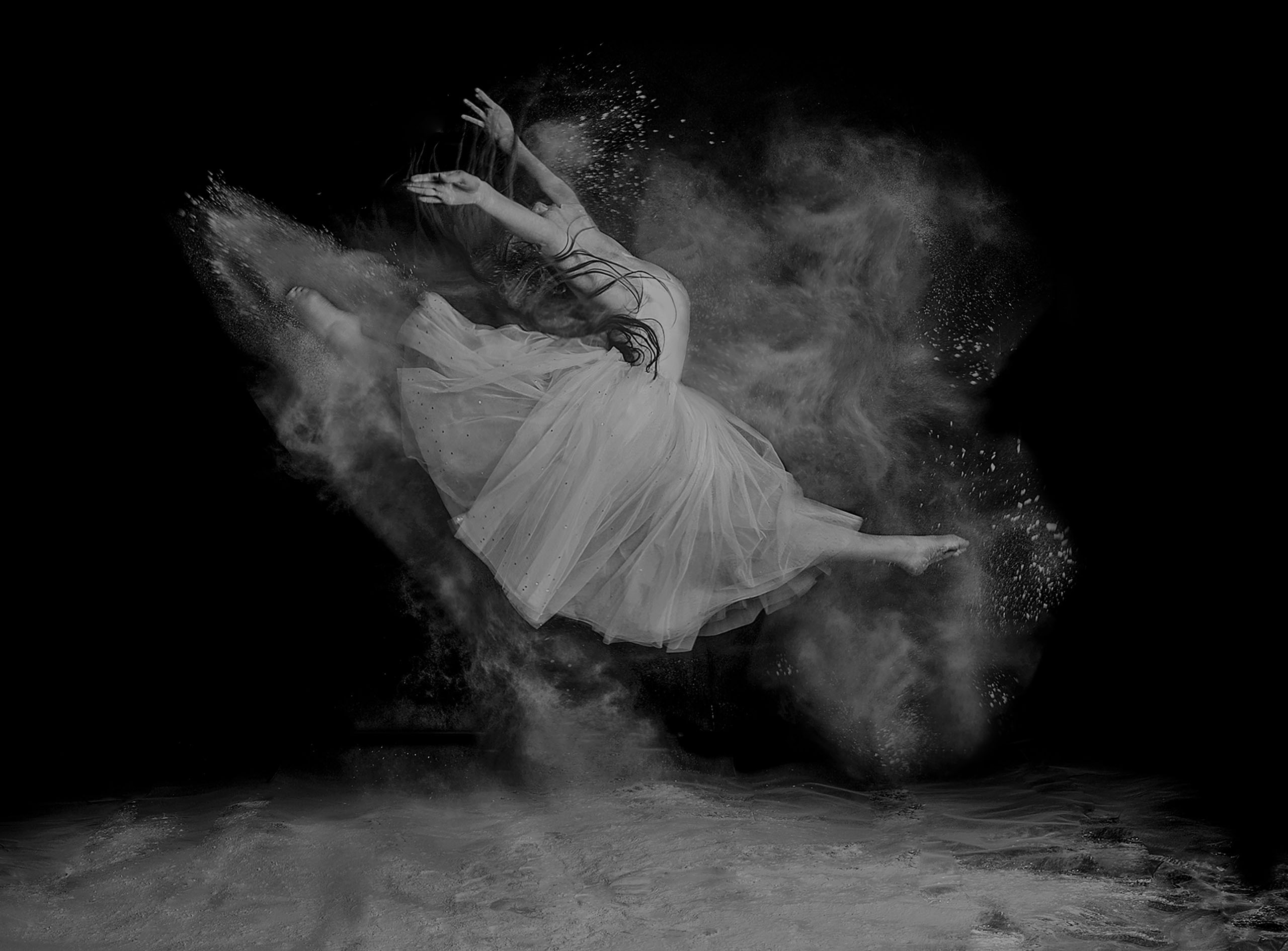
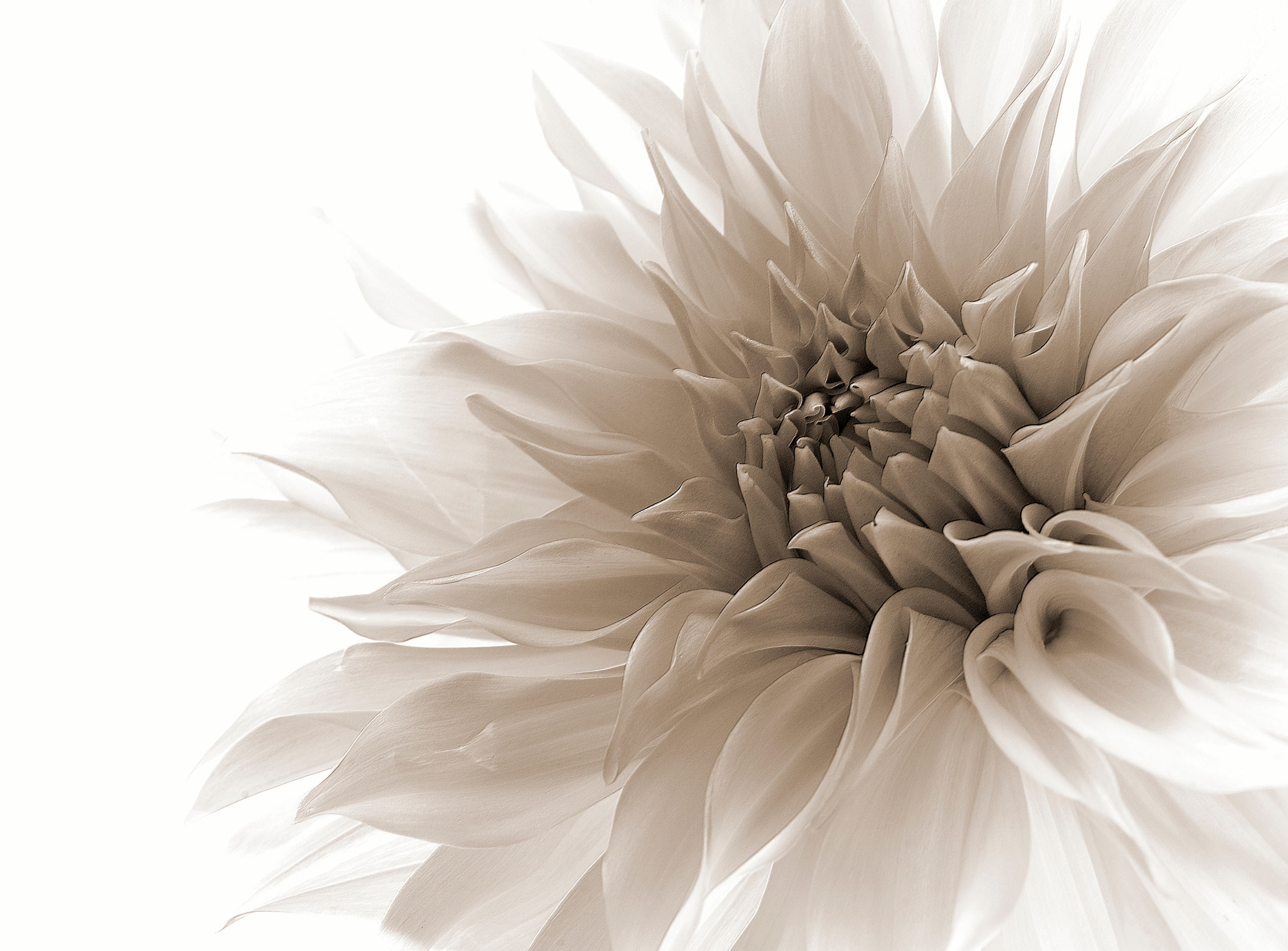
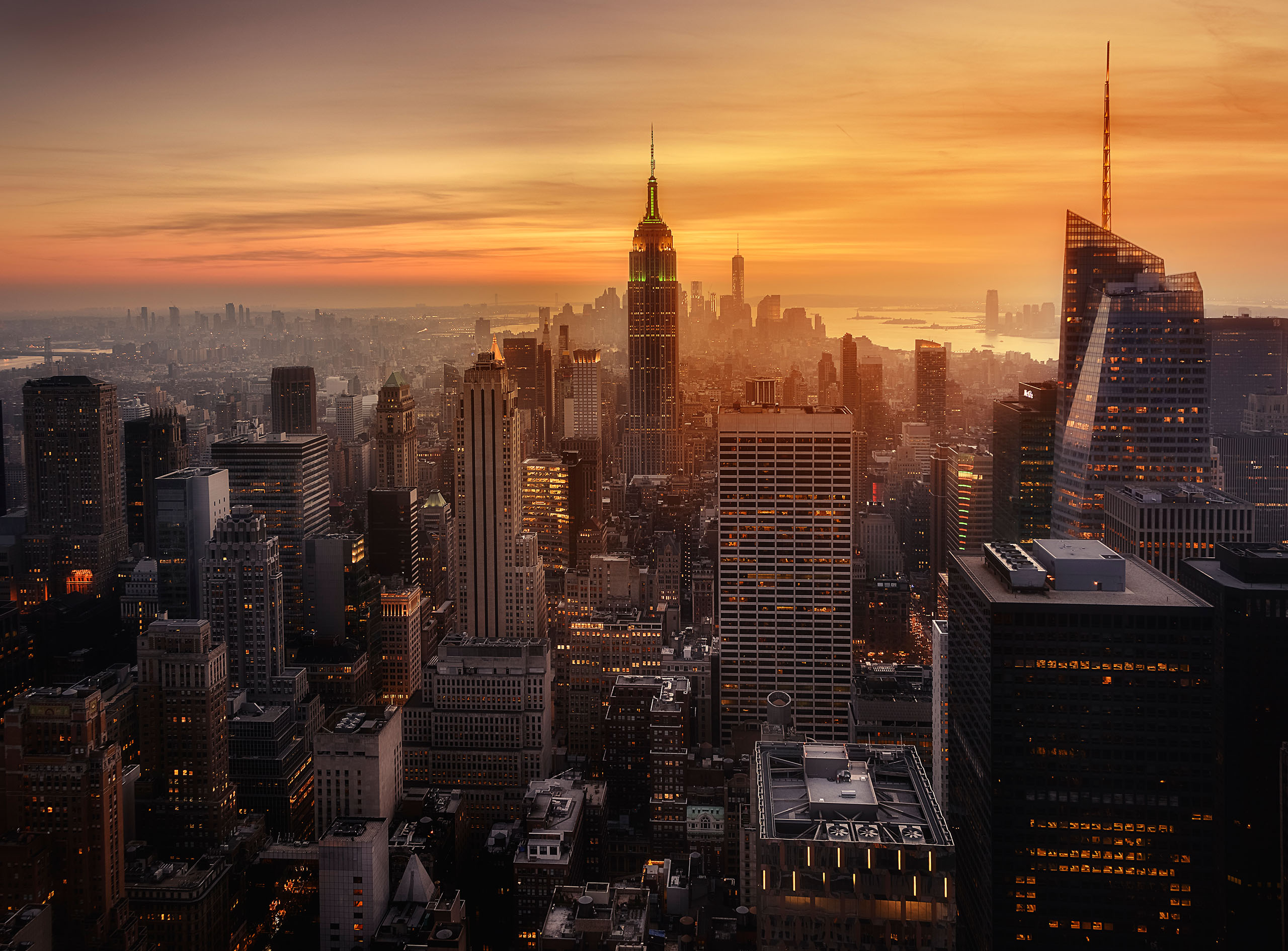
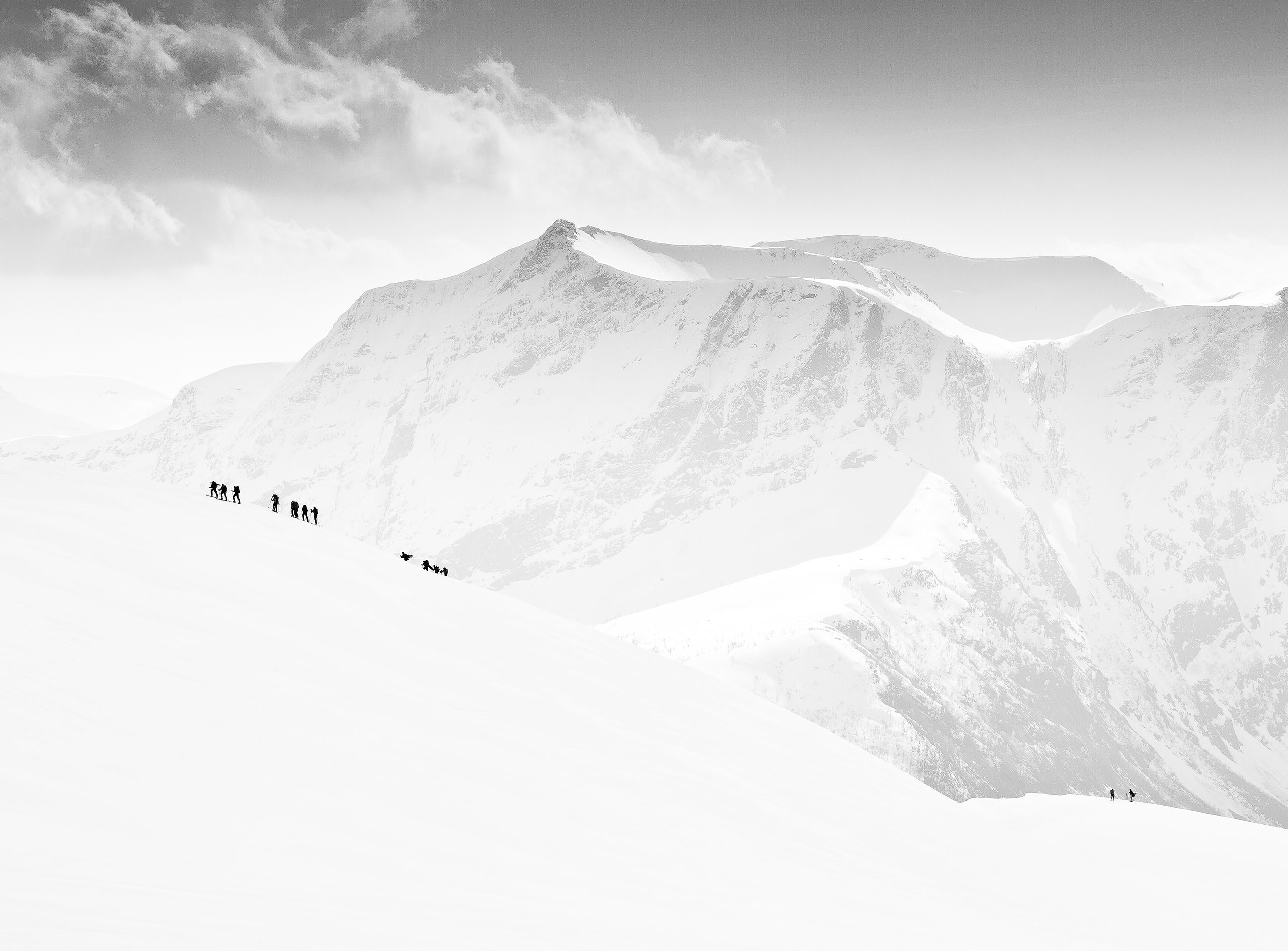
|
|
|
|


By Editor Wicher Bos
Edited and published by Yvette Depaepe, the 8th of March 2024
'Daydream' by TORU MATSUNAGA
We regularly visit the Japan Museum SieboldHuis at Leiden - a town in the Netherlands - it’s also a town with many wall poems, for instance this one, a Haiku.
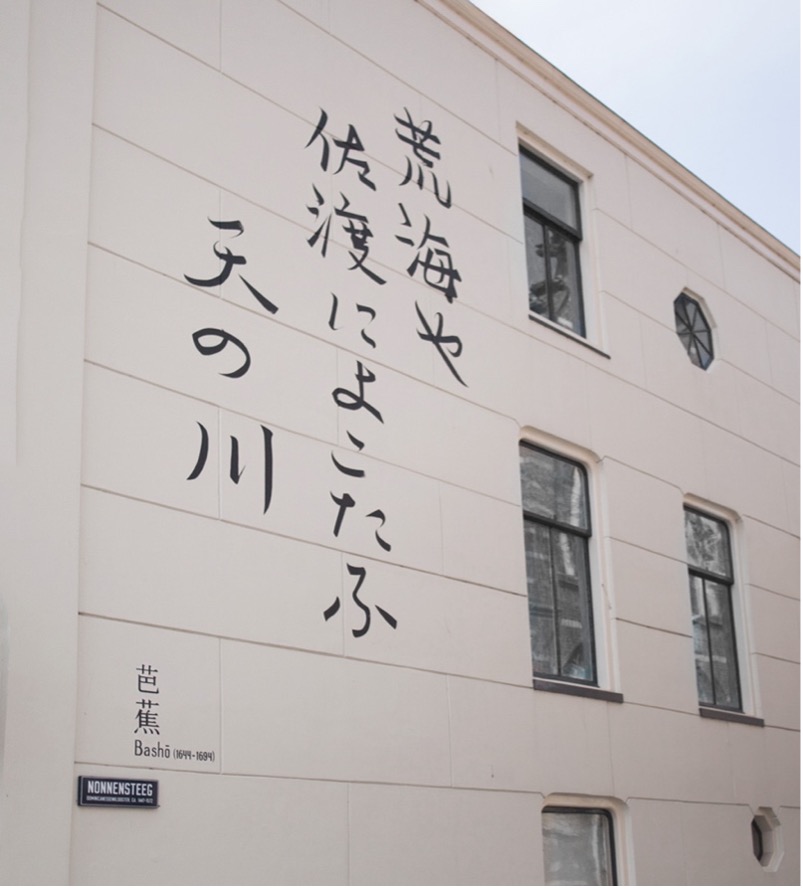
To me, a haiku is a beautiful Japanese art form, although sometimes a bit mysterious. The poetic form emerged in Japan in the 17th century from older forms due to competition between several great poets. I must admit I can’t read the originals; I need English translations. This one was made by Matsuo Basho (1644 - 1694) and R.H. Blyth gave us the English translation:
The rough sea - Extending toward Sado Isle, The Milky Way
“The haiku, in its classical form, expresses an instant experience, sometimes linked to, and inspired by Zen. The haiku is a thimble full of emotion, with little room for dissections and approximate descriptions.
The haiku is the result of careful observation and loving care. A haiku is not just a small poem in three lines with 5-7-5 syllables each, just as important is the wonder and amazement that it expresses. Reading haiku means experiencing the impressions, the atmosphere, and the feelings of the haiku moment. Haiku shouldn't need much explanation nor intellectual interpretation.”
The above explanation of what a Haiku poem in essence is, gave me an association with photography. Aren’t photographers often trying to do make a very similar image, capturing an instant moment, conveying an intense emotion? It seems that in a haiku the composition is very strict yet subordinated to expression. We all know in photography if the expression is forcible enough, it might absorb the viewer to the extent of making him unconscious of the composition.
Sigismund Blumann (1872-1956) was an American photographer widely known in California during the 1920s and 30s wrote in 1931 (Camera Craft): “The Japanese… do not see prosaically but with soulful eyes that find music in lines, poetry in masses, and a glory in colors to which we are often blind.”
My next reflection was the work of Japanese photographers like Shomei Tomatsu (1930-2012) and the Are Bure Bokeh movement. I always found their work a bit inaccessible. Now I started think about it in the same way as if it were a haiku: an intense moment and full of emotion.
Can photography be a kind of haiku?
I feel like some images may well be that because of the content.
Let me prove it to you with my pick from the 1X image vault. My “Haiku” photos.
'Rain' by Yusuke Sakai
n/t by Yusuke Sakai
'Shibuya,Tokyo' by Tatsuo Suzuki
'Shibuya,Tokyo' by Tatsuo Suzuki
'Shibuya,Tokyo' by Tatsuo Suzuki
'Last sad portrait...' by Teruhiko Tsuchida
'Why don’t you come in ?' by Teruhiko Tsuchida
'Japanese fireflies' by Daniel Kordan
'The Japanese Tree' by Javier de la Torre
'Snow Dance' by Harry Eggens
'B・BLUE' by KEN-ICHI IINØ
'THE INTENT-WEAVING SPIDER' by KEN-ICHI IINØ
'Point' by Koji Sugimoto
'Fish' by Koji Sugimoto
'Entrance' by Keiichiro Amenomori
'Kawaki' by Keiichiro Amenomori
'Awakening' by David Dhaen
You can probably find more examples using the keyword #japanese.
Can photography be a kind of Haiku? What is your answer to this question?
I have tried to show my answer. What association do you feel with these images? If you have other examples, please feel free to share your opinion even if you completely disagree with these ideas... I love the hear them.
Good Light to all,
Wicher
Ref:
https://www.sieboldhuis.org/en/about/sieboldhuis
https://muurgedichten.nl/en
 | Write |
 | Gabriela Pantu PRO "Haiku images" are like a thrill, an emotional impact that makes you reflect on what you see and come back.I love this articlle, great idea, the pictures are splendid.Thank you and congratulations!❤️ |
 | Teruhiko Tsuchida PRO Haiku reflects a deep story within each person's heart within a limited amount of text.
I don't know enough about haiku to talk about it, but photos may be similar to haiku. I would be happy if my works could also reflect a story in the hearts of those who view them.
Thank you very much! |
 | Miro Susta CREW Wicher you brought interesting subject with wonderful photos. Until now I was aware about Haiku link to Poetry, not to photography.
However thank you for very interesting article and also for the wonderful photos. Have a nice Sunday. |
 | Wicher Bos CREW Thanks Miro! |
 | Steven T CREW Wicher, Thank you for the article and an excellent choice of photos. Recently found a quote that applies to haiku and photography - and perhaps all forms of art. "The haiku that reveals seventy or eighty percent of its subject is good. The haiku that reveals just fifty or sixty percent is brilliant." . . . Matsuo Bashõ |
 | Wicher Bos CREW Thanks Steven for your kind words and that marvelous quote |
 | Bogdan Timiras PRO Just SPLENDID! Both photos and text! Congratulations s@ |
 | Wicher Bos CREW Thx! |
 | Linda Lu PRO Good point, these images are haiku kind pictures to me, have a sense that can be felt and understood in one's heart. |
 | Wicher Bos CREW thx! |
 | Kenichiro Nakamura PRO Thanks for picking up Japanese culture. I completely agree with you that the photography and haiku share many things. We need to capture many aspects and meanings with less in the limited frame in the photography, and haiku also has severe limitations on how many letters you can use.
But I never thought this before and this article was a new finding to me. |
 | Wicher Bos CREW 🙏 |
 | Roland Weber PRO No doubt, the Japanese photography is somehow special. Yes, maybe the photos are „different“ from what we show in our photos or from what we expect on the first glimpse.
I think that it is this „difference“that makes those photos touching and special.
And yes, I like them as they stand out from the daily flood of photos and images.
If we take a little bit of time to appreciate the photos, they are indeed mostly associated with feelings and are often telling wonderful stories.
But all of that wants to be discovered. |
 | Wicher Bos CREW 🙏😀 |
 | Tsuneya Fujii PRO 私は日本人ですが、俳句の事についてはそれほど詳しくはないです。昔から日本人は、全てを説明するのではなく、言葉と言葉の間に意味を探します。Wicherの言う通り、日本人の写真は俳句的なのかもしれません。 |
 | Wicher Bos CREW Thank you so much for confirming my feelings about Japanese photography that I admire a lot...
let me provide the english translation of your remark for others: I'm Japanese, but I don't know much about haiku. Japanese people have traditionally looked for meaning between words, rather than trying to explain everything. As Wicher says, Japanese photographs may be haiku-like. |
 | Tsuneya Fujii PRO However, it can also be said that they are completely different. Haiku often only has one interpretation. Some photographs taken by Japanese people leave interpretation to the viewer. It might be close to poetry. |